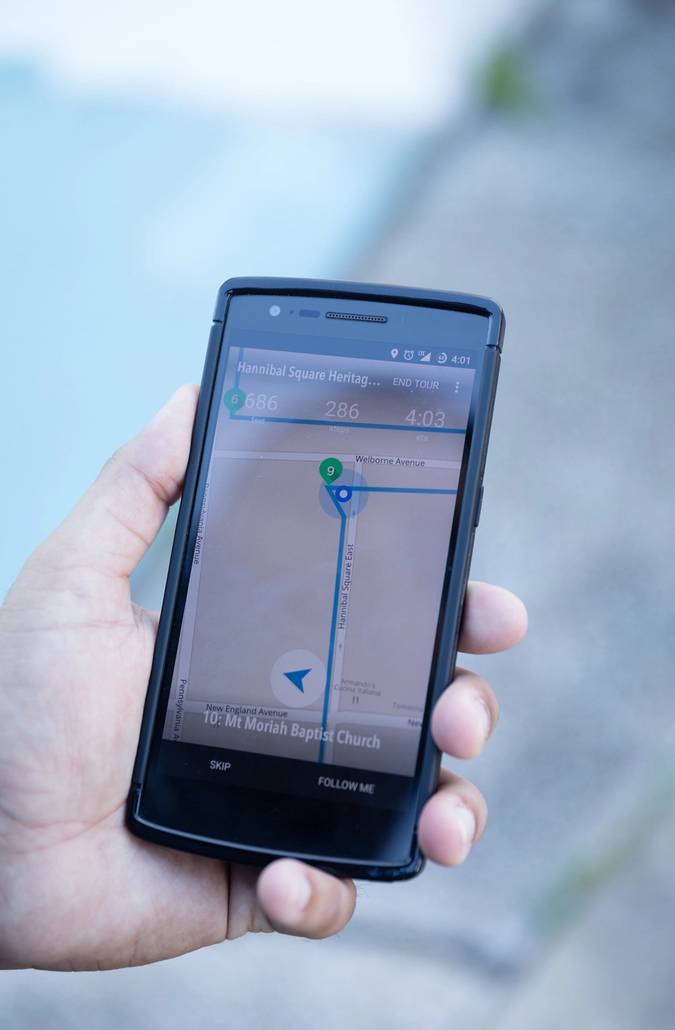Cool Class: Creating the Digital Future
November 20, 2017
By Audrey St. Clair ’03

This project-based course goes beyond learning HTML to examine how computer science, the web, and digital media are shaping our society.
Robots. Hackers. Self-driving cars. Emerging technologies and trends like these are transforming our world at a dizzying pace, and Rollins students are facing them head-on as they learn the ways that social forces mobilize the creation of new technology.

Instructor
Dan Myers, assistant professor of computer science

The Scoop
This capstone community engagement course touches on everything from web and app design to artificial intelligence and the ethics of self-driving cars. Like many Rollins classes, the course also takes an interdisciplinary approach, challenging students to examine the role of the arts, social sciences, and humanities in driving technological innovation in our brave new world.
“One of my favorite parts of the class is taking technologies like the internet, which we all use every day, and breaking them open so that students can learn a little more about how they work,” Myers says. “It’s also important to demystify technical terms like ‘artificial intelligence’ and ‘hacking’ that are discussed every day in the media.”
Myers stresses the importance of giving students ownership of the things they can create with digital tools and how these tools can support all kinds of narratives.


Snapshot
Using modern digital tools to bring local history to life, Myers and his students are partnering with the Hannibal Square Heritage Center to develop a new walking-tour app for Hannibal Square, a historic African-American neighborhood located a mile from Rollins’ campus. Important landmarks include the Lake Hall Lodge and the Mount Moriah Baptist Church, both established in the 1880s.
“I’m particularly excited about this project because it combines historical research and software development in the service of our community,” Myers says. “It’s a great example of the kind of innovative education we’re able to provide here at Rollins.”
While noting glitches, snapping photos, and pointing out issues with locations, Myers and his students explain how in the 1990s, a group of community leaders banded together to ensure that the history of Hannibal Square—once a thriving enclave of corner barbershops, schools, gospel churches, and jazz clubs—wouldn’t be entirely lost to gentrification.
And now this group of dedicated students is doing its part. After combing through archival photos, artifacts, and interviews with locals, the class is now actively preserving the past, telling the stories of the neighborhood’s history, its residents, and the pivotal places that shaped this unique community.



Student Perspective
“As a computer science major, this course is a welcome departure from the more straightforward coding work I’ve done in my major classes,” says Neeraj Chatlani ’17. “The Heritage Center project is a chance to work in the community and have a real impact.”

“I’m most excited about the idea of using applications and web design to provide a nuanced solution to the Heritage Center’s desire for a digital tour of Hannibal Square,” Chatlani says. “We’re not just collecting and displaying information; we’re trying to give visitors a deeper look at the beginnings of Hannibal Square, the people who made it what it is today, and the part it played in the development of Winter Park.”



Did You Know?
According to the app-building company Appster, the number of free apps downloaded in 2017 is projected to rise to 254 billion, more than four times the amount downloaded in 2012. This works out to an average of 37 apps per person on Earth.

Cool Classes
Go behind the scenes of dozens of Rollins’ most innovative courses.
Explore MoreExplore MoreRelated News
December 23, 2024
Orlando Sentinel: Op-Ed on Culinary Diplomacy
Joseph Poole ’26 is the founder of Breaking Bread, President of Student Government, and is studying Public Policy & Political Economy, Ethics & Global Health at Rollins College.
December 18, 2024
This Year at Rollins 2024
As 2024 draws to a close, we’re looking back at a few of the many things that we have accomplished together this year at Rollins.
December 18, 2024
Generational Impact
On a personal and professional level, the new dean of Rollins’ Hamilton Holt School knows how the grit and resilience of adult learners can produce life-changing results.
